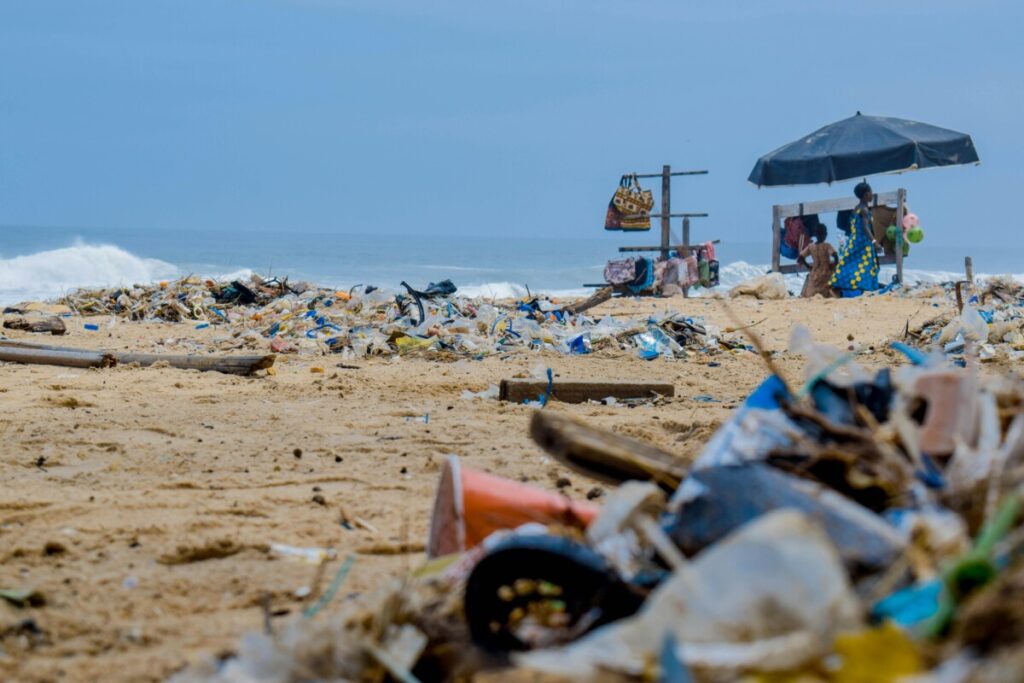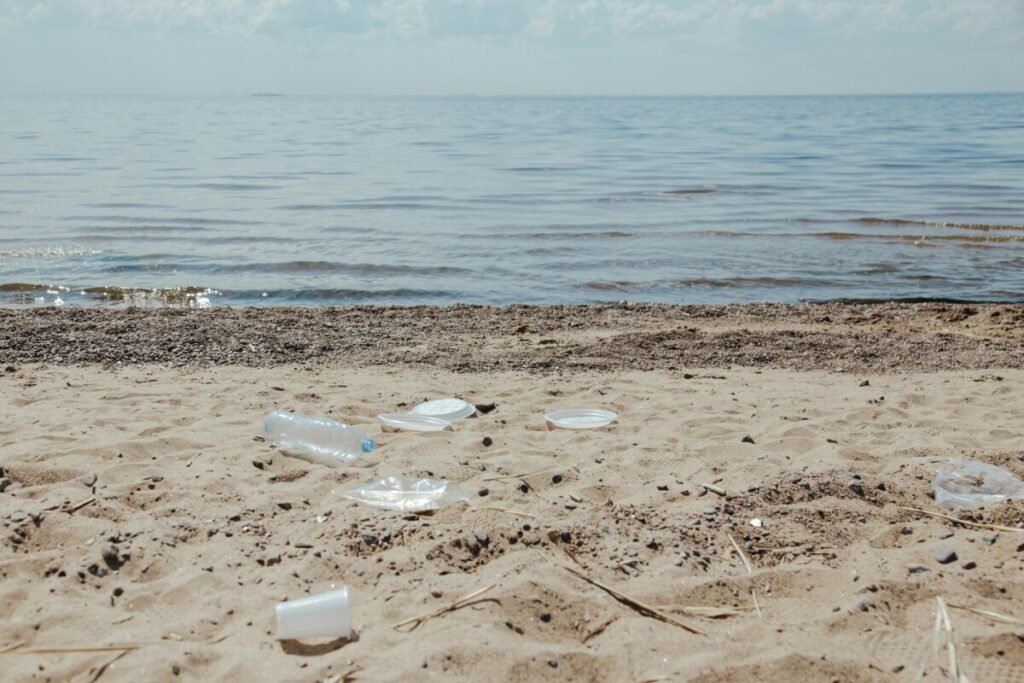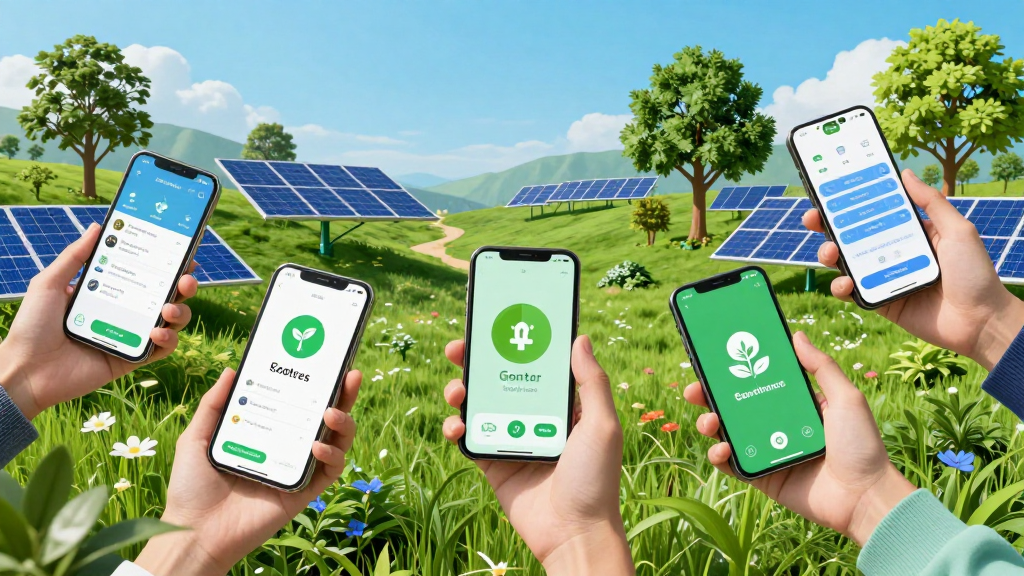Plastic Pollution: Sources, Effects, Solutions, and Facts

Plastic pollution is a growing global issue that has garnered increasing attention in recent years. From oceans to landfills, plastic waste has become a ubiquitous presence in our environment. This article aims to provide readers with a comprehensive understanding of plastic pollution, from its definition and sources to its effects and potential solutions.
Through a combination of facts, statistics, and expert insights, we hope to educate you on the pressing issue of plastic pollution and inspire them to take action. This article also highlights the urgency for immediate action and discusses the global impact of plastic pollution, emphasizing the responsibility of both individuals and larger entities in finding a solution. Let’s delve into the world of plastic pollution and explore ways to combat this pressing threat.
Defining Plastic Pollution
Plastic pollution, also known as plastic litter, refers to the accumulation of plastic waste in the environment. It is a result of improper disposal and management of plastic products, which are non-biodegradable and can take hundreds of years to decompose. Plastic pollution can take various forms, including microplastics, plastic bags, bottles, and packaging materials.
It is important to note the difference between biodegradable and non-biodegradable plastics. While biodegradable plastics may break down over time, they still leave behind microplastics that can harm the environment. On the other hand, non-biodegradable plastics remain intact and contribute significantly to plastic pollution. Plastic pollution is prevalent in our daily lives, from the plastic bags we use for grocery shopping to the plastic packaging of our food and other products. These single-use plastic products often end up in landfills or the environment, contributing to the growing issue of plastic pollution.
Sources of Plastic Pollution
There are a variety of sources that contribute to the growing issue of plastic pollution. One of the main sources is the widespread use of single-use plastic products, such as straws, bags, and packaging. These items are used for a short period and then discarded, leading to a significant amount of plastic waste in our environment. Improper waste management, including littering and inadequate recycling systems, also contributes to the problem.
According to a 2019 report by the United Nations Environment Programme, approximately 300 million tons of plastic is produced each year, with only about 9% of it being recycled. This massive production and consumption of plastic has a significant impact on the environment. The extraction and production of plastic contribute to greenhouse gas emissions, and when plastic is disposed of in landfills, it can release harmful chemicals into the soil and water.
It is estimated that by 2050, there will be more plastic in the ocean than fish by weight. This is because plastic does not biodegrade, but instead breaks down into smaller pieces known as microplastics, which are harmful to marine life and ecosystems. These are just a few examples of the sources of plastic pollution and their impact on the environment. It is crucial to address these sources to reduce plastic pollution and protect our planet.
Effects of Plastic Pollution

Devastating Effects on the Environment, Wildlife, and Human Health
Plastic pollution has a significant impact on the environment, causing harm to ecosystems and wildlife. When plastic waste is not disposed of properly, it can end up in bodies of water, where it can entangle or be ingested by marine animals, leading to injury or death. Ingestion of plastic by animals can also result in bioaccumulation, where toxins from the plastic transfer up the food chain, ultimately affecting human health.
Long-Term Consequences of Plastic Pollution
The long-term consequences of plastic pollution on the environment are dire. Plastic takes hundreds of years to decompose, filling up landfills and polluting our oceans and waterways. This pollution is disrupting the natural balance of ecosystems, leading to a decline in biodiversity and damaging the health of the planet. In addition, the production of plastic also contributes to greenhouse gas emissions, exacerbating climate change and its effects on the environment. As plastic pollution continues to increase, it is crucial to take action to mitigate its impact on the environment, wildlife, and human health.
Global Impact of Plastic Pollution
Plastic pollution is not just a local issue, but a global one that affects countries around the world. The production, consumption, and disposal of plastic have significant consequences for the environment, human health, and the economy. According to a report by the World Wildlife Fund, an estimated 8 million metric tons of plastic waste enters the ocean each year. This plastic pollution is not limited to coastal areas, as it can travel thousands of miles through ocean currents, affecting marine life and ecosystems worldwide.
Moreover, plastic pollution disproportionately affects developing countries and marginalized communities. These communities often lack proper waste management systems, leading to an increased burden of plastic waste on their land and water sources.
The global impact of plastic pollution also has economic and social implications. The tourism and fishing industries, which rely on healthy oceans and beaches, suffer from the consequences of plastic pollution. The cost of cleaning up plastic waste and its impact on public health also has a significant economic impact. Plastic pollution is a global issue that requires urgent action. The responsibility falls on individuals, governments, and corporations to take concrete steps towards reducing plastic production and consumption, proper waste management, and promoting sustainable alternatives. By working together, we can make a difference and protect our planet from the devastating impact of plastic pollution.
Urgency for Action
Plastic pollution is a pressing issue that requires urgent action. The amount of plastic waste generated globally continues to increase, with an estimated 8.3 billion tons of plastic produced since the 1950s. Without intervention, this number is projected to double by 2030. The lack of government and industry initiatives to address plastic pollution has also contributed to its exponential growth. Despite the harmful effects of plastic pollution on the environment and human health, progress has been slow. This calls for urgent action from governments, industries, and individuals to make a significant impact in reducing plastic pollution.
The consequences of inaction are dire. Plastic pollution not only harms marine life and ecosystems, but it also poses a threat to human health. Microplastics, which are tiny pieces of plastic, have been found in our food and water sources, potentially leading to health issues. Furthermore, plastic pollution has economic and social implications, affecting communities and industries that rely on clean environments. To avoid these consequences, we must take action now. Every individual can make a difference by reducing their plastic consumption and waste. Governments and industries must also implement effective policies and initiatives to reduce plastic production and improve waste management. It is only through collective action that we can combat plastic pollution and protect our planet for future generations.
Solutions to Combat Plastic Pollution
There are various solutions to combat plastic pollution, and it requires a collective effort from individuals, governments, and corporations.
1. Reduce, Reuse, and Recycle: One of the most effective ways to combat plastic pollution is by reducing our consumption of single-use plastic products. We can also opt for reusable alternatives or properly recycle plastic waste to keep it out of the environment.
2. Government and Industry Initiatives: Governments and industries have a crucial role in reducing plastic pollution. They can implement policies and regulations to reduce the production and use of single-use plastics, promote recycling, and invest in sustainable alternatives.
3. Support Cleanup Efforts: Supporting and participating in beach cleanups and other cleanup initiatives can help reduce plastic pollution in our oceans and waterways. It also raises awareness and educates people about the issue.
4. Spread Awareness: Individuals can also raise awareness about plastic pollution in their communities and social circles. Educating others about the harmful effects of plastic pollution and encouraging them to take action can lead to a greater impact.
5. Support Sustainable Brands: Supporting and purchasing from brands that use sustainable and eco-friendly packaging can also contribute to reducing plastic pollution.
Overall, plastic pollution is a pressing issue that requires immediate action. By implementing these solutions, we can all contribute to reducing plastic pollution and creating a cleaner and healthier environment for future generations.
Conclusion
In conclusion, plastic pollution is a pressing issue that has far-reaching consequences on the environment, wildlife, and human health. The sheer volume of plastic waste generated globally and the slow progress in addressing this issue call for urgent action. From single-use plastic products to improper waste management, it is clear that everyone has a role to play in tackling this issue.
As individuals, we can reduce our plastic consumption and waste, but it is also crucial for governments and corporations to take action and implement policies and initiatives to reduce plastic production and promote sustainable alternatives. The future of our planet depends on collective action and responsibility. Let us join hands and work towards a plastic-free future. Remember, small actions can make a big impact. Take action today and support efforts to combat plastic pollution.
https://fiscalfitnessflow.com/index.php/2024/02/29/the-significance-of-effective-waste-disposal/
https://www.plasticpollutioncoalition.org/
Additional Resources
Many organizations and initiatives are working towards combating plastic pollution and protecting the environment.
Here are some additional resources for those looking to learn more and take action:
Plastic Pollution Coalition: A global organization dedicated to reducing plastic pollution through education, advocacy, and collaboration. Visit their website for resources, tips, and ways to get involved.
Break Free From Plastic: An international movement fighting against plastic pollution through corporate accountability and promoting sustainable alternatives. Check out their website for ways to take action, including signing petitions and joining clean-up events.
National Geographic’s Planet or Plastic?: This project raises awareness about plastic pollution and provides resources for individuals to reduce their plastic consumption. Visit their website for facts, tips, and educational materials.
Remember, small actions can make a big impact. By educating yourself and taking action, you can be a part of the solution to combat plastic pollution and protect our planet for future generations.
FAQs
Q: What is plastic pollution?
A: Plastic pollution refers to the accumulation of plastic materials in the environment that hurt wildlife, ecosystems, and human health.
Q: How does plastic enter the ocean?
A: Plastic enters the ocean through various sources such as rivers, coastal areas, and direct disposal at sea. Much of the world’s plastic waste generation ends up in the ocean.
Q: Why is ocean plastic pollution a global problem?
A: Ocean plastic pollution is a global problem because plastic debris can persist in the environment for hundreds of years, harming marine life, polluting coastlines, and affecting ecosystems worldwide.
Q: What are the effects of plastic pollution on marine life?
A: Plastic pollution can lead to entanglement, ingestion, and habitat destruction for marine organisms. Fishing gear, plastic items, and synthetic materials can pose serious threats to underwater ecosystems.
Q: How can we tackle plastic pollution in oceans?
A: Tackling plastic pollution in oceans requires a multi-faceted approach including reducing plastic waste generation, promoting recycling initiatives, cleaning up marine litter, and raising awareness about the importance of preserving our oceans.








